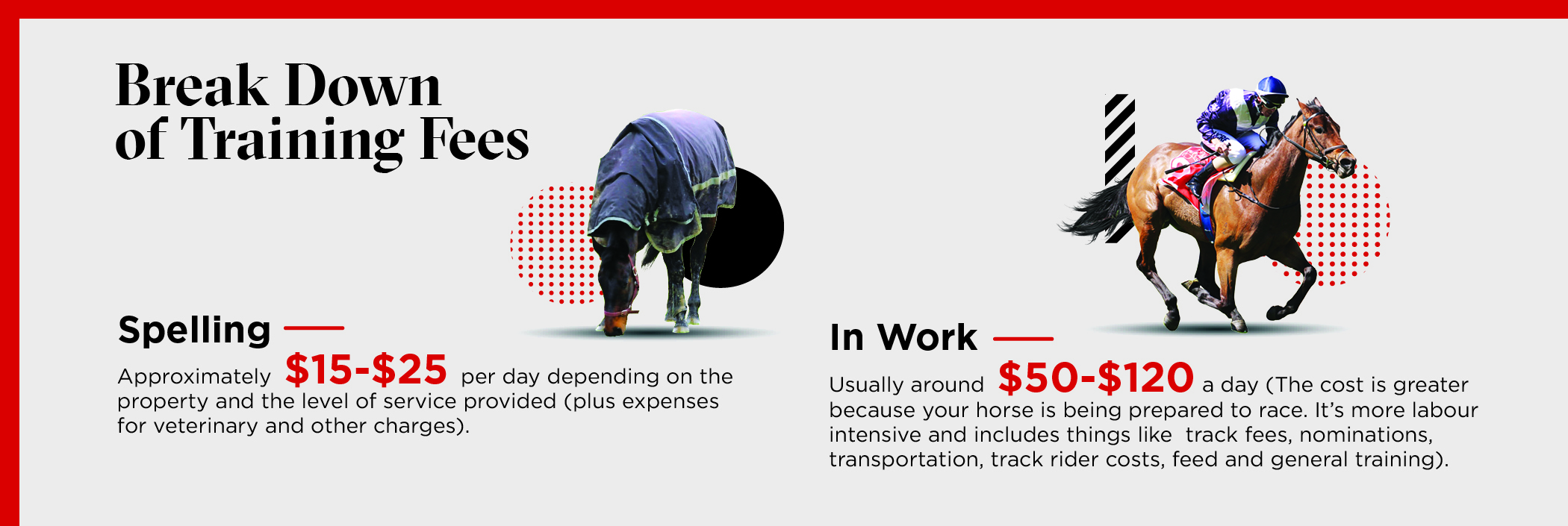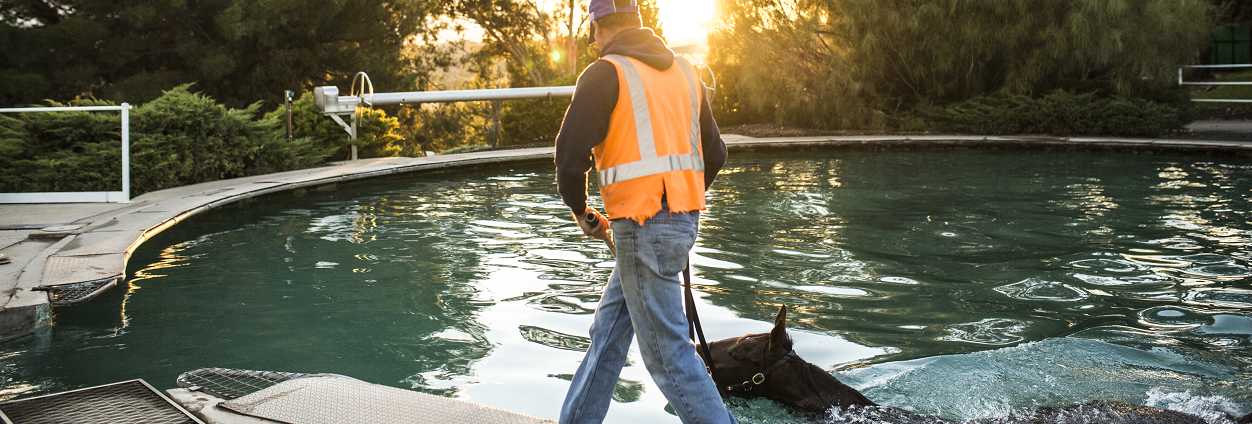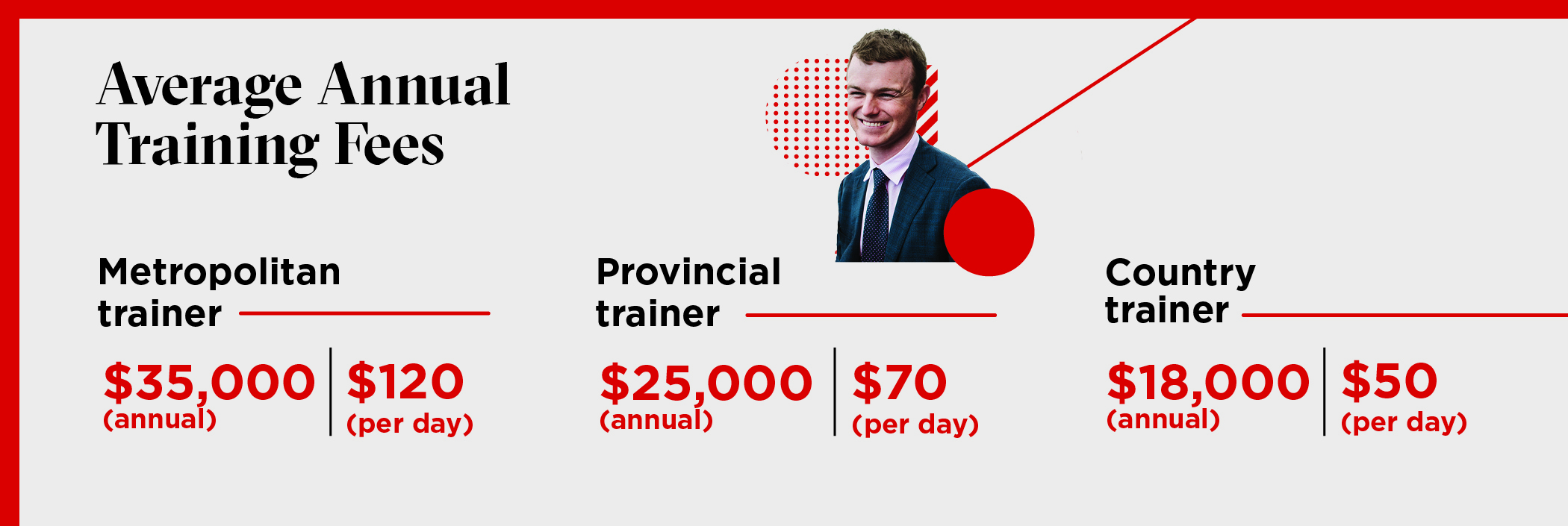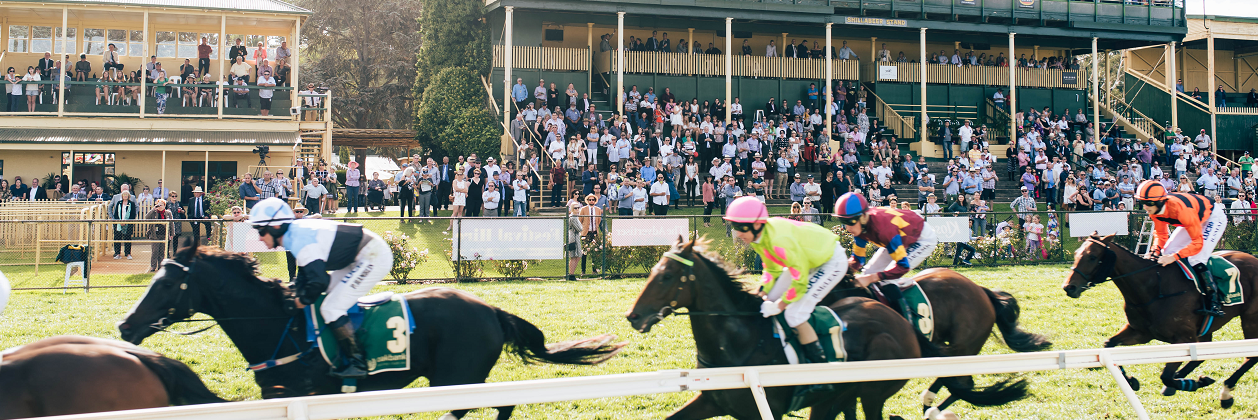- Finding a Trainer
- Training
- Race Day
Finding a Trainer

For most first time owners, the easiest way to get into ownership is to get in touch with a trainer.
Trainers will usually go to the thoroughbred sales and buy a number of horses which they then sell shares in to others. Many trainers are great judges of horses and will be the people who spend countless hours with your horse and will get it to the track and hopefully winning some races for you!
Finding a trainer is easy but deciding which one is right for you is another thing. There are a number of ways to find which trainer may be best for you and all it needs is a little research.
- Track the Trainers Premiership Table to see which trainers are doing well both in Adelaide and around the state
- Where is the trainer based? If you live in the country, perhaps it’s best to choose a local trainer so that you can visit your horse and watch it run live more often
- How much are the trainer’s fees? It may be enticing to choose a big trainer with a lot of success and horses in work but sometimes their fees can be a lot dearer than a smaller trainer who only has a few horses
For a list of Trainers click here
So you’ve made a shortlist, checked strike-rates, figured out a budget and now it’s time to have a chat to some trainers. It’s important to ask lots of questions to find out whether a particular trainer may be the one for you.
Some good questions to ask are:
- What is your communication method (emails, text messages, or phone calls) regarding the horse’s progress?
- Can I see my horse when I like (e.g. before a race or when it’s not racing)?
- Where do you prefer to race your horses?
- Where will my horse be based when it’s a) in work, and b) spelling?
- How many horses do you have in work?
- What are your training fees?
- Do you charge any extras, such as veterinary fees?
- What type of horses (sprinters, stayers, jumpers, younger or older) have you had the most success with?

Training

It will be some time before your horse makes it to the track. Before a yearling can race, it must be broken in. This process usually takes a couple of months and involves teaching the horse many skills: turning, stopping, wearing a saddle and, ultimately, having a jockey on its back.
It also learns how to follow the running-rail of a racetrack, gets accustomed to the starting gates and generally learns its trade. Once your horse is broken in, it’s usually sent for a spell before being brought back in work for racing preparation.
Of course, you may have bought an older horse that’s already in work – if so, enjoy the experience.
It is important to be patient with your horse and trust your trainer’s judgement as they always have the horses' best interests at heart. Some horses take longer to get to the track than others but like athletes, horses develop and mature at different times in their lives.

Race Day

You’ve made it! Your first raceday as a racehorse owner!
There’s nothing like watching your horse run for the first time – expect butterflies in your stomach.
By this stage your trainer should have contacted you about how the horse is looking and what his expectations are for it heading into the race.
Course Entry
If you are an owner (or part of a syndicate) your name or syndicate name will be featured as an owner in the race book and you will usually be admitted into the racecourse free of charge. Some clubs prefer to refund the admission cost at the Secretary’s Office.
At the track you are able to visit your horse before the race at the horse stalls. And you are allowed to meet with the trainer and jockey prior to your horse’s race to discuss tactics in the mounting yard. Some racecourses require mounting yard passes which are available from the Secretary’s Office.
Jockey
Your trainer would have selected a jockey to ride your horse in the race. Often they have a relationship with a number of jockeys who they use frequently but sometimes a jockey will be chosen on their style or the weight the jockey will carry.
Colours
Usually a horse will race in the colours registered by the trainer, and most owners are happy with that. If you wish, you or your syndicate can register your own set of colours for your horse to race in, usually this happens if an individual or syndicate has a large share of a particular horse.